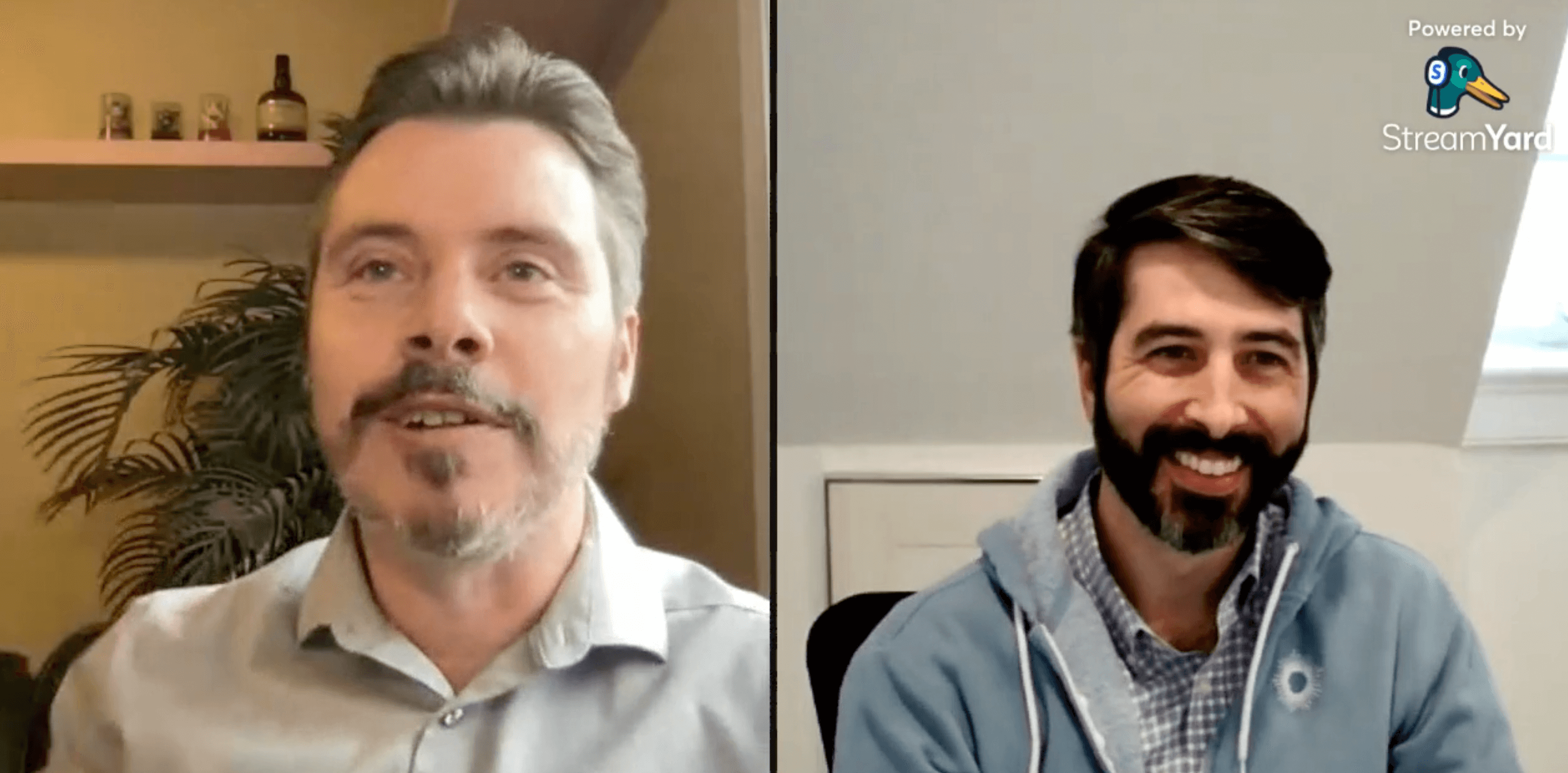Table of Contents
Since March 2020, talent acquisition leaders contended with near-constant changes in both how they approach candidates, as well as sourcing top talent. The question is how to approach the remote work environment efficiently and conduct not only effective interviews with candidates, but also run interview processes that build the candidate experience and create excitement over the new role.
Teddy Chestnut, Chief Revenue Officer from BrightHire, spoke with Scott Parker, Director of Product Marketing for GoodTime, and shared smart recommendations for interviewers faced with the ever-changing recruitment landscape. Here are the key takeaways from their LinkedIn Live, with actionable steps on improving how you train your interviewers and how your team approaches the recruitment process.
“Being remote is no longer an excuse for not having your hiring plan together.”
— Teddy Chestnut, Chief Revenue Officer at BrightHire
1. “The New Normal.” It’s Pretty Much Just Normal Now
The pandemic afforded hiring teams the opportunity (or challenge, depending on your take) to manage the interview process using Zoom and other virtual tools to connect with and communicate effectively with candidates. Teams and candidates alike are now accustomed to having remote communication for interviews, and reverting back to less efficient processes isn’t likely.
Teams have pivoted their plans to remote, hybrid, and flex models to capture top talent. Having buy-in on a plan that speaks to the future of work is critical. “Being remote is no longer an excuse for not having your hiring plan together,” says Chestnut.
2. Building Adaptable Teams Is a Non-negotiable
Companies that do not provide flexibility for their candidates are at a distinct disadvantage because now candidates prefer to have the option to work from anywhere. Because of the new hiring processes teams have been forced to implement, employees are increasingly requiring more interviewer training, and teams need to update their tech stacks to optimize core hiring metrics.
Building a resilient team that not only thrives in a remote work environment, but also demonstrates to prospective candidates the positive culture created in a distributed workforce, makes all the difference when sourcing new talent in this ever-competitive market.
3. Help Interviewers Avoid Distracti… Look at This TikTok!
Now that many of us work 100% remote and are far more accessible, calendars are filled to maximum capacity. Because of constant access to news and by social media, it’s harder to tell if a remote interviewer is distracted versus when they were in person, because they can’t just grab their phones in the middle of interviews. The challenge today is for interviewers to give their candidates full attention so that the interview process can be as effective as possible.
When the calendar is full with back-to-back meetings, and Slack, WhatsApp, and Gmail constantly send notifications, it’s much harder to concentrate in an interview fully. Candidates can quickly tell when their interviewer is not giving them their full attention, which can create a negative experience that they might write about on Glassdoor.
Those negative reviews could deter potential candidates from even considering applying for a position at your company. Teams need to help interviewers focus on the task at hand, and work hard to avoid distractions in order to create a positive candidate experience.
4. Great Candidates Have Lots of Options (And They Know It)
Since the start of the Great Resignation, it’s been clear that the hiring process has greatly changed. Almost all candidates have other offers, even when they’re sitting right in front of you in an interview.
Interviewers need to remember that candidates have other options, and probably have other people giving them offers for a job. This means that interviewers need to make sure that the company is communicating the value that it can add to the candidate. The candidate also needs to make sure that they present themselves in the best way possible.
Things have drastically changed with the dynamic between the candidate and the interviewer. This creates a sense of urgency between the interviewer and the candidates and it makes the interviewer keenly aware that they have to make sure that the scheduling works well and they’re not skipping interviews. Otherwise, these candidates can easily take a different job offer because of a delay caused by the interviewer.
5. Training Interviewers Is the New Non-negotiable for 2022
When you’re in a situation requiring an interview where you have to have over seven hours of interviewing a day, logistics become challenging. Interviewers have to take time to do candidate research, write the feedback, and have time for preparation even before the interview starts.
Interviewers must have the right training to know how to interpret what they learn about the candidates they’re interviewing. When the interviewers are trained with the skills needed to manage remote interviewing, the interview process will be so much more efficient than it would’ve been if they were not well trained — or worse, not trained at all.
Time To Elevate the Candidate Experience With Interviewer Training
Train interviewers how to create an amazing interview experience— then teach them to trust the process.
The time is now to implement interviewer training. GoodTime helps you train interviews with ease, giving you one hiring experience solution that lets you track interviewers and their progress and train them at scale. GoodTime gives you the confidence that your selected interviewers evaluate candidates effectively.
Want to learn more about the positive difference GoodTime can make? Sign up for a demo now.




